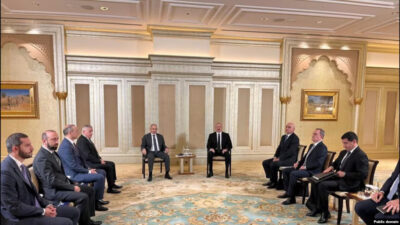By Edmond Y. Azadian
It looks like the embattled nominee to the position of US Ambassador to Azerbaijan, Matthew Bryza, will be confirmed by the senate. But the tug-of-war between the administration and the groups opposing his nomination needs to be noted in the annals of diplomatic history — an opposition to which the Armenian lobbying force has contributed significantly, and which has stretched the US diplomatic vacuum in Baku to almost 15 months.
The State Department tacitly, and its public arms openly, blame the Armenian lobby for the delay, whereas simple logic would dictate that a less-controversial nominee could easily breeze through the hearings that Mr. Bryza limped through. Now that his ego has been bruised, after vigorous cross examination, he may take his revenge on Armenians, as a result of his Pyrrhic victory.
The administration tried to force a Bush-era leftover through nomination in a desperate attempt to demonstrate bi-partisanship at the expense of Armenian interests.
The Senate Foreign Relations Committee, chaired by John Kerry, voted 17 to 2 to confirm Bryza’s candidacy. Unfortunately, Senator Kerry seems to have lost his moral compass since losing his bid for the White House, and this is not the first time that he is damaging his once-impeccable record as a man of principle. The two Democratic senators, Barbara Boxer and Robert Menendez, placed holds on the nomination, further delaying Mr. Bryza’s trip to Baku.
The Armenian Assembly and the ANCA put up a valiant fight in derailing Mr. Bryza’s appointment. Even if the State Department overrules all the valid objections raised by the two groups, a lesson will be learned that Armenian rights cannot be trampled easily, especially by light-weight diplomats with checkered records.







